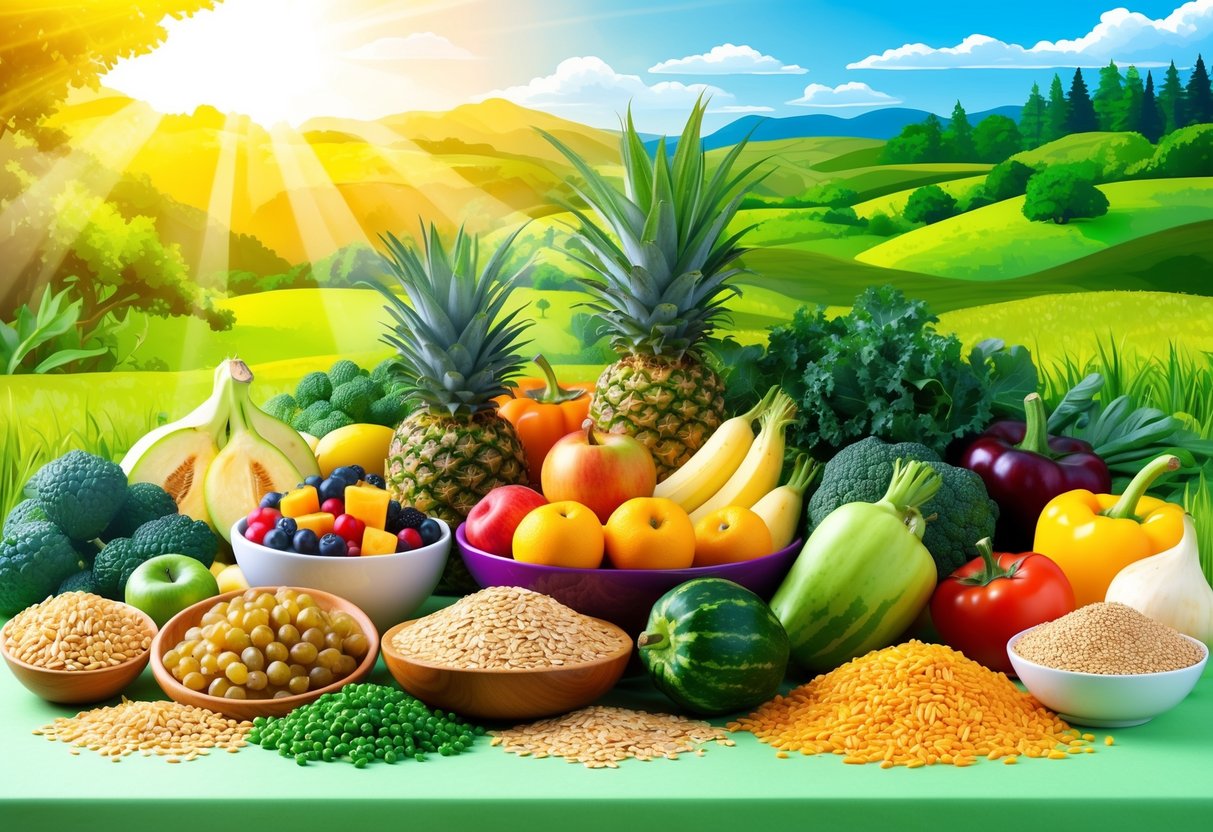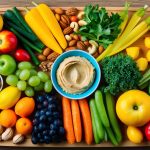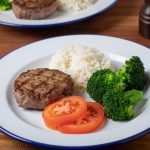
Whole Grains for Sustained Energy
Whole grains are foundational to a balanced diet. They supply the body with complex carbohydrates for lasting energy, while also offering fiber, vitamins, and essential minerals that support overall nutrition and healthy digestion.
Quinoa: Complete Plant Protein
Quinoa stands out as a whole grain because it contains all nine essential amino acids, making it a complete plant protein. This is rare among plant-based foods and is especially beneficial for those looking to maintain or increase their protein intake without animal products.
A single cup of cooked quinoa offers about 8 grams of protein and 5 grams of dietary fiber. The high fiber content promotes digestive health and helps stabilize blood sugar levels.
In addition to protein and fiber, quinoa supplies iron, magnesium, and B vitamins, which are key nutrients for energy metabolism and nervous system health. Quick Recipe Tip: Rinse quinoa before cooking to remove natural saponins.
Simmer one part quinoa with two parts water for 15 minutes, then fluff with a fork. Pair with vegetables and a protein source for a well-balanced meal.
Learn more about the benefits of quinoa as a whole grain superfood.
Brown Rice: Complex Carbohydrates
Brown rice provides a steady source of complex carbohydrates, making it an excellent choice for sustained energy throughout the day. Its unrefined nature means it retains the bran and germ, delivering more fiber, vitamins, and minerals when compared to white rice.
Each cup of cooked brown rice contains around 3.5 grams of fiber, which assists with healthy digestion and helps promote a feeling of fullness. It is also a good source of magnesium, B vitamins, and manganese, all of which are crucial for metabolism and overall nutrition.
Easy Recipe: For a simple side, cook brown rice with low-sodium broth and stir in lightly steamed vegetables or herbs before serving. Brown rice is featured in diets that emphasize whole grains for optimal nutrition.
Legumes: Protein and Fiber Powerhouses
Legumes deliver an abundance of nutrients, especially fiber and plant-based protein, making them essential for heart health, stable blood sugar, and weight management. Their nutritional profile supports a balanced diet and benefits those following vegetarian and diabetic-friendly meal plans.
Beans: Blood Sugar Control
Beans, including black, kidney, and pinto beans, are loaded with soluble fiber, which plays a major role in moderating blood sugar spikes after eating. This helps to prevent sharp increases in glucose, making beans a valuable food for individuals with diabetes or those at risk.
Low on the glycemic index and rich in plant-based protein, beans promote satiety and support weight management. They also provide magnesium and potassium, which benefit overall heart health.
Incorporating beans into meals can help sustain energy levels throughout the day. For easy recipes, beans work well in salads, soups, and chili.
Their firm texture absorbs flavors, making them a versatile staple in vegetarian cooking. For more information on the nutritional value of beans, see Healthline’s list of the healthiest beans and legumes you can eat.
Lentils: Low-Fat Lean Protein
Lentils are celebrated for being high in protein yet very low in fat. One cooked cup provides about 18 grams of protein and 15 grams of fiber.
This nutrient-dense legume is an excellent choice for those seeking a lean protein alternative to meat. Aside from protein and fiber, lentils are packed with folate, iron, and other minerals that support energy production and metabolism.
Their slow-digesting fiber helps maintain steady blood sugar and keeps you feeling full for longer periods. Lentils cook quickly and are easy to incorporate into soups, stews, and curries.
They pair especially well with vegetables and whole grains. For more on why lentils are nutritional standouts, the Health Cleveland Clinic describes lentils as nutritional powerhouses.
Chickpeas: Versatile Superfood
Chickpeas, also known as garbanzo beans, are a nutrient-dense legume high in both protein and dietary fiber. A single cup of cooked chickpeas offers about 15 grams of protein and 12 grams of fiber, making them excellent for supporting digestion and maintaining muscle health.
Chickpeas’ low glycemic load helps manage blood sugar, which benefits people with diabetes and those aiming for steady energy. Rich in essential minerals such as iron and manganese, chickpeas also contribute to metabolic health.
They can be used in a variety of dishes—from roasted snacks to creamy hummus and hearty curries. Their mild flavor and creamy texture make chickpeas a practical ingredient for many balanced recipes.
See more high-fiber, high-protein foods recommended by dietitians at Good Housekeeping’s list of best high-protein, high-fiber foods.



